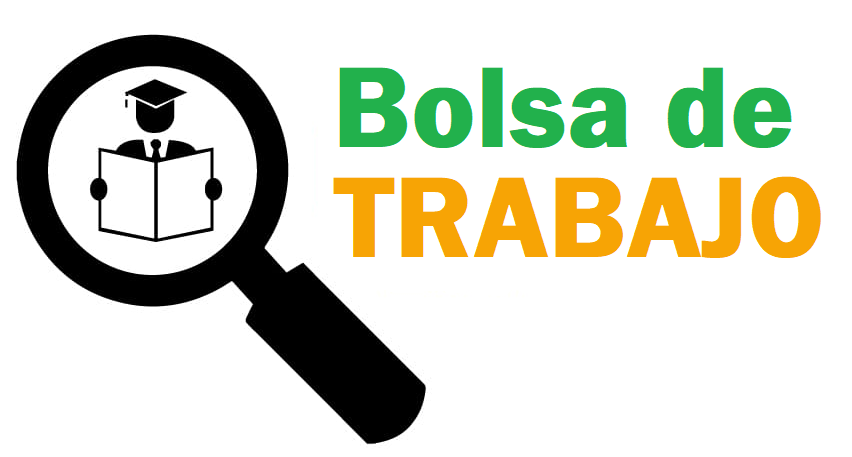Building on the insights from Unlocking the Power of Luck: Lessons from Elvis and Modern Games, this article explores how individuals can actively shape their destiny by understanding and applying strategic methods to influence chance. While luck often appears as a mysterious force, a growing body of research suggests that through intentional effort, mindset shifts, environmental awareness, and technological tools, we can substantially increase our chances of success. This transition from viewing luck as pure chance to recognizing it as a skillful process opens new avenues for personal and professional growth.
- 1. Introduction: From Chance to Choice—The Evolving Perspective on Influencing Luck
- 2. The Psychology of Perceived Control: How Beliefs Shape Opportunities
- 3. Environmental and Contextual Factors: Setting the Stage for Opportunities
- 4. Developing Personal Skills to Influence Chance
- 5. Strategic Use of Rituals and Symbolism to Attract Opportunities
- 6. Leveraging Technology and Data to Increase Odds
- 7. Case Studies: Successful Strategies in Business, Sports, and Personal Life
- 8. Risks and Ethical Dilemmas in Attempting to Influence Luck
- 9. Bridging Back to the Parent Theme: Lessons from Elvis and Modern Games
1. Introduction: From Chance to Choice—The Evolving Perspective on Influencing Luck
Historically, luck was perceived as an uncontrollable force—an element of randomness that shaped outcomes beyond human influence. However, modern research and experiential insights, including those discussed in the parent article, reveal that luck can be reframed as a skillful process. This shift empowers individuals to approach opportunities with strategic intent rather than passive expectation.
Reframing luck as a skill emphasizes the importance of deliberate actions—be it cultivating the right mindset, optimizing surroundings, or leveraging technology—that collectively increase the probability of favorable outcomes. Such an approach transforms luck from a matter of chance into a domain of influence and mastery, enabling proactive engagement with life’s uncertainties.
This evolution from entertainment lessons to practical strategies encourages us to view chance as an adaptable variable—something we can navigate, shape, and even create through intentional efforts.
Understanding the shift from passive to active influence
By recognizing the factors that contribute to luck—such as timing, environment, and mindset—and developing skills around them, individuals can significantly tilt the odds in their favor. This perspective aligns with the insights from entertainment and game theory explored in the parent article, illustrating how showmanship and strategic play impact perceived luck.
2. The Psychology of Perceived Control: How Beliefs Shape Opportunities
Our beliefs about control and luck profoundly influence our actions and perceptions. For example, individuals with a growth mindset tend to see setbacks as opportunities to learn, which increases resilience and openness to serendipitous events. Conversely, those with a fixed mindset may interpret uncontrollable circumstances as personal failures, reducing their likelihood of capitalizing on chance.
Confidence plays a crucial role; studies show that self-assured individuals are more likely to seize opportunities and take calculated risks, effectively creating their own luck. This aligns with the concept of self-efficacy—the belief in one’s ability to influence outcomes.
Cognitive biases, such as the confirmation bias and illusory correlation, can distort our perception of luck, making us overestimate or underestimate our influence. Recognizing these biases enables us to adopt a more realistic and proactive attitude toward chance.
Practical techniques to cultivate a proactive attitude include visualization, affirmations, and reframing setbacks as learning opportunities. These methods reinforce a mindset that perceives chance as something that can be influenced through attitude and effort.
3. Environmental and Contextual Factors: Setting the Stage for Opportunities
Your surroundings and situational awareness significantly impact your ability to encounter luck. Recognizing optimal environments—such as networking events, industry conferences, or creative spaces—can dramatically increase the chances of serendipitous encounters. For instance, entrepreneurs often succeed by positioning themselves in environments where innovative ideas flourish.
Timing, often considered a matter of luck, can be influenced through deliberate actions like planning and preparedness. Being attentive to cues—such as social signals or market trends—enables individuals to recognize when conditions are ripe for opportunity.
Social networks act as catalysts for luck; studies indicate that the size and quality of one’s network correlate strongly with chances of serendipity. Expanding and nurturing relationships—both professionally and personally—creates a fertile ground for unexpected opportunities.
Serendipity, often dismissed as mere coincidence, can be cultivated by maintaining curiosity, openness, and active engagement within diverse environments. This mindset transforms passive luck into an active pursuit.
4. Developing Personal Skills to Influence Chance
Adaptability and resilience are critical skills for capitalizing on unexpected opportunities. For example, entrepreneurs who pivot their business models in response to market shifts often turn initial setbacks into new avenues for success.
Building intuition and decision-making under uncertainty involves honing pattern recognition, emotional intelligence, and rapid assessment skills. For instance, seasoned investors often rely on gut feeling, developed through experience, to make quick decisions that lead to favorable outcomes.
Persistence and sustained effort are fundamental; many success stories—be it in sports, arts, or business—highlight how consistent work increases the likelihood of seizing fleeting opportunities. The concept of «preparedness meets opportunity» reflects this principle.
Training methods include deliberate practice, scenario simulations, and reflective learning, all designed to sharpen personal skills and influence the randomness of chance.
5. Strategic Use of Rituals and Symbolism to Attract Opportunities
Rituals, whether cultural or personal, serve as psychological anchors that bolster confidence and reinforce positive perceptions of luck. For example, athletes often perform pre-game routines to instill focus and a sense of control, which correlates with better performance.
Cultural practices, such as lucky charms or ceremonial gestures, aim to influence chance by aligning subconscious beliefs with desired outcomes. These rituals may seem superficial but often have a tangible impact on confidence and mental preparedness.
Designing personalized rituals—like affirmations, visualization exercises, or specific routines before critical tasks—can create a mental environment conducive to attracting opportunities. These practices act as cognitive cues that prime the mind for success.
«The power of rituals lies not in their supernatural effects, but in their ability to shape our perceptions and boost our confidence—elements crucial for influencing luck.»
6. Leveraging Technology and Data to Increase Odds
Analytics, artificial intelligence, and predictive modeling have revolutionized how individuals and businesses identify favorable conditions. For instance, data-driven investment strategies analyze market trends to inform decision-making, thereby increasing the likelihood of profitable outcomes.
Gamification and simulation tools—such as virtual reality training or scenario planning—allow users to practice influencing luck in a controlled environment. These methods enhance decision-making skills and build confidence in unpredictable situations.
However, ethical considerations are paramount; manipulating chance through technology must adhere to principles of fairness and integrity. Overstepping boundaries risks damaging trust and undermining the genuine influence that skill and effort can develop.
| Technology Tool | Application | Benefit |
|---|---|---|
| Predictive Analytics | Market forecasting, risk assessment | Increases likelihood of timely decisions |
| Simulation Software | Decision-making under uncertainty | Enhances intuition and preparedness |
| AI-driven Recommendations | Personalized opportunities detection | Improves chance of serendipitous encounters |
7. Case Studies: Successful Strategies in Business, Sports, and Personal Life
Entrepreneurs like Richard Branson exemplify how strategic positioning and resilience turn luck into opportunity. Branson’s ventures often thrived due to his willingness to embrace risk, learn from failures, and adapt swiftly.
Athletes such as Michael Jordan created their own luck through relentless practice, mental toughness, and visualization. Jordan famously credited his success to preparation that allowed him to capitalize on fleeting opportunities during games.
Everyday individuals, from job seekers to hobbyists, have transformed chance into opportunity by cultivating networks, honing skills, and maintaining a positive mindset—demonstrating that luck is accessible with deliberate effort.
8. Risks and Ethical Dilemmas in Attempting to Influence Luck
While striving to influence luck can be empowering, it raises ethical concerns. The line between strategic influence and manipulation is thin; exploiting others or dishonest practices undermine trust and integrity.
Maintaining authenticity is essential—genuine efforts rooted in skill and effort foster long-term success and reputation. Recognizing when uncontrollable elements dominate is equally important; not all luck can or should be influenced.
Being aware of these dilemmas ensures that strategies to influence luck remain aligned with personal values and societal standards, avoiding the pitfalls of unethical conduct.
9. Bridging Back to the Parent Theme: Lessons from Elvis and Modern Games
The entertainment and gaming worlds offer valuable parallels to personal influence strategies. As discussed in the parent article, showmanship, psychological play, and game theory demonstrate how perceptions of luck can be shaped and manipulated for entertainment and success.
Just as entertainers craft their image and utilize rituals to enhance their «luck,» individuals can adopt showmanship techniques—such as confident body language, storytelling, and strategic timing—to influence their opportunities.
Ultimately, integrating lessons from entertainment, psychology, and technology allows us to view luck not as a passive force but as a dynamic component we can influence—making chance an asset rather than an obstacle.


